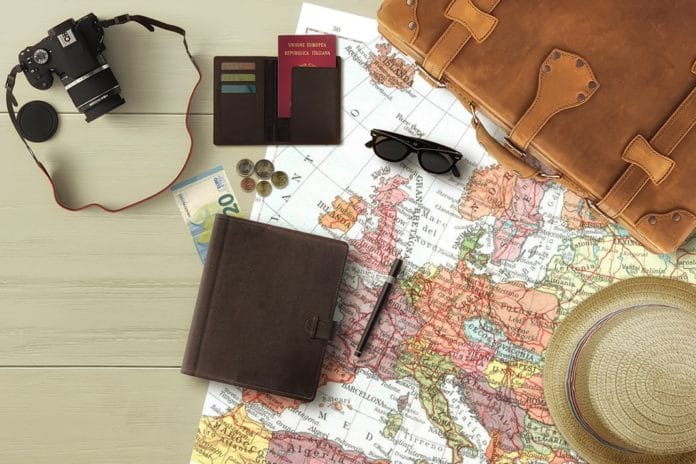Disclosure: This article is sponsored content from quip as part of our sponsored partner program.
8 Things Hygienists Should Know before Volunteering Overseas
1) Where to Go?
Choosing where to go is often the hardest decision. Oral health education and care is needed worldwide and therefore your skills are needed across the globe! Where have you always dreamed of traveling? Do you know a second language? Which country is calling you? Even if you only have one week to volunteer, you can still make a measurable difference in the lives of people around the world!
2) What Organization Should I Choose?
There are many organizations investing in oral health around the world. Before signing up to volunteer, make sure the organization you are considering is reputable.
Some good questions to ask are how long has the organization been around? Do they focus both on education and treatment, or only palliative care? Are they committed to returning to the same communities year after year? Organizations that are committed long-term to a community have the most positive impact on the oral health of their patients.
Signing up to volunteer overseas should be easy! Any organization you’re considering should have good customer service and respond to your questions in a timely manner. They should also have a transparent, straightforward explanation of fees associated with volunteering.
3) Get a Passport and maybe a Visa
To travel overseas, you will need a passport. It takes a few months to get a passport, so plan accordingly. If you already have a passport, make sure it doesn’t expire within six months of your trip departure. Some countries require a visa for entry. Check out travel.state.gov for more information on which countries require visas.
Be sure you understand what requirements are needed for you to volunteer in the country. The organization you sign up with should give you this information and assist you with any special volunteer related government paperwork.
4) Ensure Your Hygiene License is Up-to-date
Most foreign governments require international volunteers to be licensed if they are providing direct care to patients. Some exceptions may be made for retired professionals. Make sure your license is valid through your clinic dates.
5) Book Your Airfare
Most mission trip sponsorships do not cover the cost of the flight to/from the mission site, but you can find budget-friendly deals online at websites such as Travelocity, Expedia, or Fly.com. Also worth noting, Skyscanner.com will contrast price verses flight time and is a great tool to use for an overview of flight options.
Tuesdays are often the best day to purchase flights – prices have a tendency to drop this day. If you’re not travel-savvy, ask a travel agent for help. Before hitting purchase, double-check that your arrival and departure dates match with the itinerary provided by the organization.
6) Protect Your Health
Staying healthy is extremely important when you travel internationally. Visit the CDC for an up-to-date list of recommended vaccinations for every country in the world. Meet with your doctor well in advance of your trip to discuss recommended vaccinations and medications. Keep in mind that some vaccinations are a series and require four to six months to complete.
Staying healthy overseas also includes taking extra precautions like washing your hands often, drinking filtered water, paying attention to what you eat and protecting yourself from insects. Itchy bites and upset stomachs can ruin even the best planned trip.
7) Pack Appropriately
Check the climate of your destination and pack accordingly. Is it the rainy or dry season? How much does the temperature vary during the day? Will your hotel or clinic have air conditioning or heat? Do you need a hat and sunglasses for sun protection?
Research what clothing is appropriate in that culture. Some cultures are more conservative than the United States. It’s a horrible feeling to show up in a village ready to work only to realize that you’re not dressed appropriately.
Do you need to pack enough clothes for two weeks or can you wash and reuse outfits? Pack comfortable walking shoes – it’s not fun exploring a new place when your feet hurt. Once you know what to pack, choose your luggage. We recommend backpacks for carry-ons and a small suitcase with wheels as a checked bag.
The organization you are volunteering with should provide a complete packing list so be sure to ask them for help if you have any questions.
8) Ready, Set, Go!
Take a lot of photos to remember this trip of a lifetime! Share your story on social media to inspire others to get involved. There is so much need — together we can make a difference, one healthy smile at a time!
Always wanted to go on a mission trip? Apply to have quip sponsor you!
quip is committed to helping everyone improve their oral care habits. That’s why quip is thrilled to partner with Global Dental Relief and support the wonderful work they do with children in need across the globe.
In addition, quip is sponsoring* a mission trip for one hygienist on one of GDR’s upcoming mission trips to Guatemala. If you are available to join this life changing opportunity, please fill out this form. We will select the recipient on March 2nd, 2020 and will contact you directly if you are selected for the sponsorship. Some terms and conditions apply.
Content provided by Global Dental Relief, a non-profit providing dental care to children in need in Nepal, India, Cambodia, Kenya,Guatemala and Mexico. Since 2001, GDR has hosted 3,000 volunteers, providing treatment and oral health education to 192,245 children. To learn more about Global Dental Relief, visit www.globaldentalrelief.org.
*quip’s sponsorship will cover the cost of the program fee, most meals, and the round trip airfare for this trip. quip will select one hygienist from qualified applicants based on their statement of interest in the mission, and all decisions are in quip’s sole discretion and are final.











